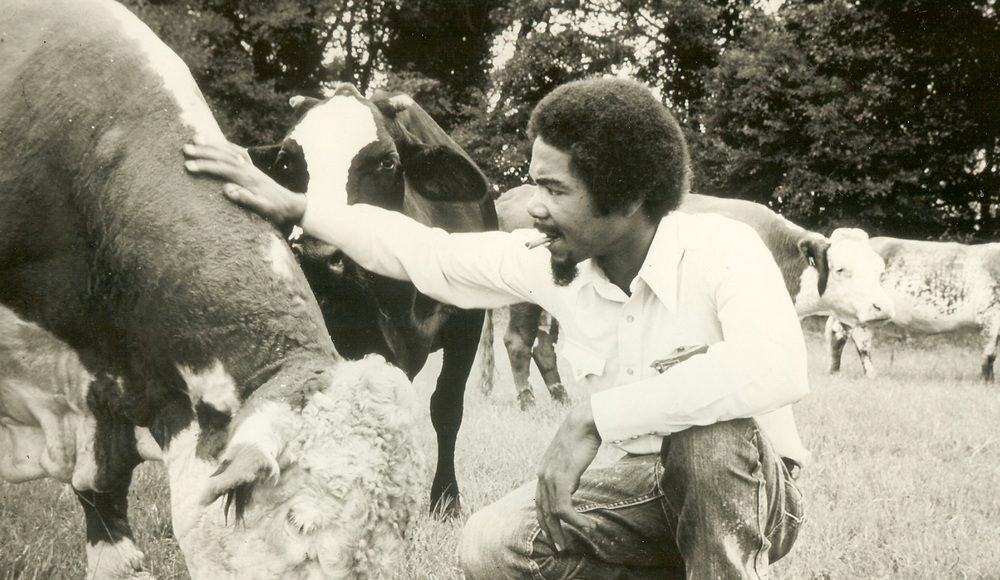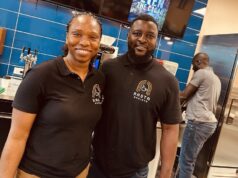“A beautiful way to spark complex conversations about race, justice and community power.”
That’s the description of the documentary “Arc of Justice: The Rise, Fall and Rebirth of a Beloved Community,” which will be screened as part of the Madison Area Community Land Trust (MACLT) 25th Anniversary Celebration event on Tuesday, Nov. 15, at the Urban League of Greater Madison.
As part of this anniversary event, MACLT is bringing internationally known affordable housing and community land trust expert John Emmeus Davis to Madison who will talk about the documentary he co-produced, “Arc of Justice,” which traces the remarkable journey of New Communities, Inc. and the struggle for racial justice and economic empowerment among African Americans in southwest Georgia in the ’60s.
“I think the simplest description of a community land trust is community-led development of individually owned buildings on community-owned land,” Davis tells Madison365 in a phone interview from his home in Burlington, Vermont.

MACLT has been making homeownership affordable for low-moderate income homebuyers in Madison for 25 years. The 25th-anniversary celebration is a chance for MACLT to celebrate its accomplishments, acknowledge partners who have been keys to its success, and look ahead to its next quarter century of service to the community.
“MACLT is one of about 280 community land trusts around the United States. There are also about 100 in England and a handful in Australia, a half-dozen in Canada, some in Belgium. But all of these community land trusts grew out of a single seed that was planted in the civil rights movement in southwest Georgia in the 1960s,” Davis says. “This is kind of a forgotten story; a forgotten chapter in history. Not many people are aware that community land trusts started with an experimental cooperative farm right outside of Albany, Georgia that was incorporated in 1969.”
The New Communities, Inc. was created by leaders of the Civil Rights Movement to help secure economic independence for African American families. For fifteen years, NCI cooperatively farmed nearly 6,000 acres of land despite racist attacks and refusals by federal agencies to provide grants or loans.
“The leaders of that movement came out of the Albany Movement and the Student Non-Violent Coordinating Committee (SNCC) – the local activism and the region-wide activism opposed to Jim Crow and segregation,” Davis remembers. “These were activists that were part of the Freedom Rides in the south and had been part of voter registration for years.”

Those civil rights activists leading that charge included Congressman John Lewis, and Charles and Shirley Sherrod. “African-American civil rights activists at that time said that the next phase in the Civil Rights Movement should be to build on the activism of trying to secure legal and political rights by also trying to secure economic rights and economic independence,” Davis remembers. “The vehicle that they chose and since have helped to invent and re-invent were the community land trusts.”
This group of civil rights activists managed to get their hands on almost 6,000 acres of agricultural and forest land outside of Albany. They hung onto that land for 15 years until it was lost to foreclosure in 1985, but 25 years later NCI was given new life as a result of a successful class action lawsuit brought by hundreds of African American farmers against the U.S. Department of Agriculture.
“Out of NCI emerged that idea for a community land trust that was later taken up by hundreds of organizations throughout the United States and now throughout the world,” Davis says.
New Communities land was owned by a non-profit corporation with a membership that was based in the African-American community in South Georgia. “They acquired the land and held onto that almost 6,000 acres with the intent on never selling it – they would hold it in trust for a larger community of African-American families and farmers,” Davis says. “The buildings – houses, stores, greenhouses, individual structures – on that community-owned land were to be individually owned by families and businesses.”

Affordable housing and community land trusts are areas of expertise for Davis who lives in Burlington, Vermont, where he was once the city’s housing director under former Burlington Mayor Bernie Sanders. Davis now works as a consultant traveling throughout the U.S. and to Europe and Australia advancing the understanding of community land trusts.
“That was a lot of fun working for Bernie. Burlington started one of the earliest community land trusts,” Davis remembers. “The first community land trust was actually initiated explicitly by a municipal government. Bernie’s administration managed to find $200,000 of seed money in 1983 to act as a catalyst to create the Burlington Community Land Trust.”
Davis was hired by the city of Burlington to work with the community and economic development office to help start the Burlington Community Land Trust. After that, Davis was hired to be the city’s housing director, also under Bernie Sanders.
“Those were pretty interesting years. Bernie basically said, ‘Come up with new ideas.’ And if those ideas helped to empower and improve the lives of working people, let’s do them. It was fun,” Davis remembers.
Did he ever think that he was hanging out with a serious future presidential candidate?

“I don’t think Bernie ever thought he was going to be a presidential candidate,” Davis laughs. “I remember when he was mayor, serving in the House of Representatives was not even a gleam in his eye. Certainly not becoming a senator and a leap to becoming a presidential contender. No. I never thought it and neither did Bernie.”
Davis says that he has been to Madison before and really enjoys the town and is looking forward to speaking at the MACLT’s 25th Anniversary Celebration Event and answering questions about “Arc of Justice.”
“I think the power of this documentary ‘Arc of Justice’ is not only to introduce this unusual model of affordable housing and community development which is the community land trust,” he says. “It is also to introduce some unsung heroes and to make some connections between the past and the present. Remember, what these black activists were fighting for in the ‘60s was voter suppression. They were fighting for the right to vote and fighting for the right to economic self-determination.
“All of these are predecessors to contemporary issues. Voter suppression did not start with the contemporary GOP. It has a long history,” he adds. “So, I think that part of the power of Arc of Justice is to draw some of those parallels and some of those connections between social issues then and social challenges and issues today.”
Davis stresses that there is an overall message of hope. “The people who created new communities proved their resiliency and their courage to keep on working and to keep on fighting,” he says. “They never gave up.”
The MACLT 25th Anniversary Celebration Event will take place Tuesday, Nov. 15, 5:30-7:30 p.m. at the Urban League of Greater Madison, 2222 S Park St, Ste 200.










